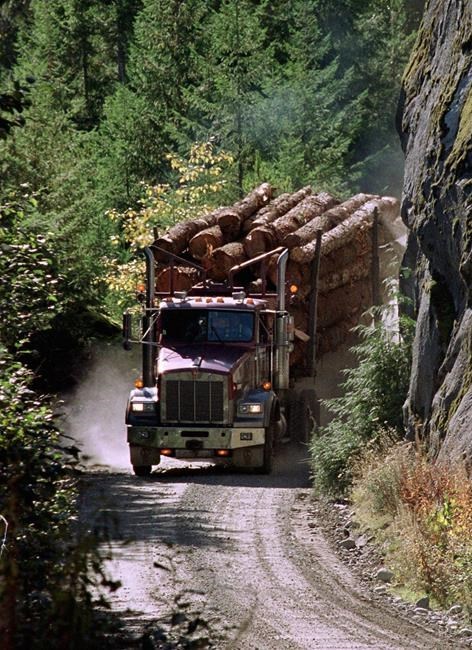BC’s financial watchdog has found problems with the way the Province maintains and manages its vast network of forest service roads.
BC’s auditor general, Michael Pickup, released a new audit of the backcountry road system through the province’s forest lands on January 19.
The audit assessed whether the Ministry of Forests, Lands, Natural Resource Operations and Rural Development managed safety and environmental risks on FSRs in accordance with its policies.
And it found the ministry lacking.
“We found that the ministry did not complete critical maintenance and repairs on roads, bridges and major culverts that are part of the 58,000 kilometers of FSRs in the province,” said Michael Pickup, auditor general.
The auditors also found that natural resource districts received only about 25% of their budget requests for maintenance on roads they had deemed as priority. And about $9 million worth of high-priority maintenance and repair work was unfunded.
The audit also found that the ministry’s information on inventory, inspections and maintenance was inconsistent, difficult to share and, at times, inaccurate.
“These gaps made it challenging for the ministry to monitor and track maintenance activity,” the report says.
Nine recommendations
While FSRs are built primarily to access timber for forestry operations, they are often used for other industrial and commercial purposes, and provide important access to remote and First Nations communities, private residences, recreation and wilderness areas. The roads aren’t built or maintained to the same standards as public roadways, but proper upkeep is critical to help ensure the safety of road users and protect the environment, the auditors said.
Still, “The ministry did not manage safety and environmental risks on FSRs as required by its policies,” the audit found. “The shortcomings in maintenance work and lack of reliable information increase risks to road users and to the environment.”
The report includes nine recommendations to help the ministry meet its own expectations for undertaking inspection and maintenance work on FSRs:
• improve policies and practices to make sure information on FSRs is complete, accurate and easily accessible to both ministry and BC Timber Sales staff. “This includes location, length, the ministry entity responsible for administration, and the permit holder responsible for maintenance,” the auditors said
• develop a plan for regular inspection and maintenance of bridges and culverts to meet ministry policies
• clear up policies and practices to ‘provide consistent guidance’ on inspection schedules, maintenance, and the closing and deactivation of roads
• do more to enable natural resource districts to accurately and consistently track ministry inspections and maintenance on forest service roads
• assess whether the natural resource districts are inspecting forest service roads as required by policy and take action to reconcile any gaps
• reconcile the discrepancy between policy requirements and the extent of maintenance that actually occurs, given resource allocations
• support the effective oversight of forest service roads that are under road use permits, including improving the supervision of road maintenance by the permit holder
• BC Timber Sales should enable business areas to accurately and consistently track inspections and maintenance on FSRs
• BCTS should “assess whether it is inspecting and maintaining forest service roads as required by policy and take action to reconcile any gaps.”
A ministry official said FLNRORD agreed with the report’s findings that there are opportunities for improvement in the management of forest service roads.
“To that end, we are creating new FSR data systems and reviewing and reconciling policies to address the Auditor Generals’ findings and recommendations,” said ministry spokesperson Tyler Hooper. “We are also committed to aligning policy and improving the tracking and inspection of maintenance being done on FSRs by government to ensure consistency and accountability.”



